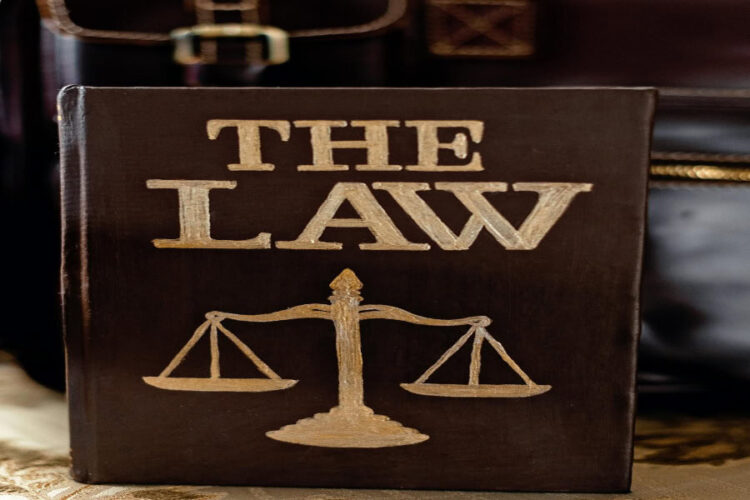“Is Saul Goodman a good lawyer?” is a question often asked by fans of Breaking Bad and Better Call Saul. As a colorful, morally ambiguous character, Saul Goodman (whose real name is Jimmy McGill) has captivated audiences with his quick wit, sharp legal mind, and questionable ethics. His unconventional methods have earned him both admiration and criticism. This article explores Saul Goodman’s abilities as a lawyer and whether he’s “good” in the traditional sense.
In the legal world, a good lawyer is typically measured by their knowledge of the law, ability to represent clients, and ethical standards. Saul Goodman’s career is anything but ordinary. His legal practice is filled with moral gray areas, from representing drug dealers to orchestrating elaborate schemes. Yet, he has an undeniable knack for navigating the system and getting results. This analysis will explore Saul Goodman’s strengths and weaknesses as a lawyer, weighing whether his methods make him a “good” lawyer or an effective one. We’ll also compare his skills to more conventional legal practices.
Is Saul Goodman a Good Lawyer?
Saul Goodman is an unconventional lawyer who, while not always ethical, is undeniably skilled at getting results for his clients. His deep knowledge of the law and quick thinking allow him to navigate complex situations, often bending the rules but rarely breaking them outright. While he may not be a “good” lawyer in the traditional sense due to his moral flexibility, he is practical and resourceful, especially when dealing with complex cases.
The Unconventional Lawyer – Saul Goodman’s Legal Methods
When assessing whether Saul Goodman is a good lawyer, it is essential to examine his methods. Unlike traditional attorneys, Saul operates in the gray areas of the law, often bending the rules but rarely breaking them outright. He thrives in criminal defense, where his ability to exploit legal loopholes and his deep understanding of the system become powerful tools.
Saul Goodman’s primary strength lies in his adaptability. He can represent clients from various backgrounds, including small-time criminals and drug kingpins like Walter White. His ability to adjust his approach based on the situation shows his keen legal mind. He doesn’t just understand the law—he knows how to manipulate it to his client’s advantage.
Despite his apparent disregard for ethical standards, Saul rarely crosses legal lines that would jeopardize his career. This makes him effective in high-stakes situations where other lawyers might falter. For example, his creative defense strategies often involve plea bargains, witness intimidation (though indirect), and even manipulating the court system to benefit his clients.
Another key element of Saul’s lawyering is his focus on client satisfaction. While many lawyers are dedicated to following ethical guidelines, Saul prioritizes winning cases and pleasing his clients, even if it means bending the rules. His clients, often involved in illegal activities, appreciate his results-driven approach, valuing success over morality.
In conclusion, although unconventional, Saul Goodman’s legal methods are undeniably effective. His ability to think outside the box and his willingness to push ethical boundaries raises the question: Does being a “good lawyer” mean following the rules, or is it about getting results?
Is Saul Goodman’s Moral Flexibility a Strength or a Weakness?
Saul Goodman’s Relationship with Legal Ethics
Saul Goodman often operates in the law’s gray areas, which raises questions of ethics. He uses his knowledge of legal loopholes to his client’s advantage, but his actions sometimes blur the lines of legality.
The Client’s Perspective: Results Of Ethics
Many of Saul Goodman’s clients come to him because of his reputation for results. They are often willing to overlook ethical concerns if they can deliver favorable outcomes in court or through plea deals.
Saul’s Definition of Success
For Saul, success is measured not by adherence to legal ethics but by winning cases and protecting his client’s interests. This definition of success often clashes with traditional legal standards.
The Consequences of Saul’s Methods
While Saul often wins cases for his clients, his methods sometimes bring unintended consequences, both legally and personally. His association with criminals like Walter White pulls him into dangerous territories, challenging whether his moral flexibility is sustainable.
Comparing Saul to Traditional Lawyers
Traditional lawyers may prioritize ethical behavior over quick wins, often sacrificing short-term victories for long-term integrity. Saul’s approach raises the question: Is it better to be an ethical lawyer who loses or a morally flexible one who wins?
Saul Goodman’s Strengths as a Lawyer:
- Deep Understanding of Criminal Law: Saul’s knowledge of criminal defense is second to none, especially in cases involving drug-related crimes.
- Adaptability: Whether representing a drug kingpin or a petty criminal, Saul adjusts his strategies accordingly, showcasing his versatility.
- Client-Centered Approach: He prioritizes his clients’ needs, ensuring they get the best possible outcomes, even if it means taking ethically questionable routes.
- Negotiation Skills: Saul excels at plea deals and settlements, often securing favorable outcomes without going to trial.
- Creative Legal Tactics: From faking evidence to using loopholes, Saul’s creativity in the courtroom allows him to outmaneuver his opponents.
The Dark Side of Saul’s Legal Practice – Ethical Dilemmas
While Saul Goodman’s legal skills are impressive, they often come at the cost of ethical integrity. Throughout his career, Saul’s choices reflect a willingness to compromise ethical standards for personal gain and client satisfaction. His approach to the law is shaped by a flexible moral compass, which leads him into numerous ethical dilemmas.
One significant example is his willingness to represent dangerous criminals like Walter White. Saul knows that representing such individuals could lead to legal and personal consequences, yet he chooses to proceed, prioritizing financial gain and success over legal ethics. This moral flexibility is both his greatest asset and his biggest weakness.
The line between legal and illegal becomes increasingly blurred in Saul’s practice. He uses intimidation tactics, blackmail, and manipulation to get results for his clients, often placing himself and others at risk. While these strategies work in the short term, they jeopardize the legal system’s integrity and challenge traditional notions of justice.
In essence, Saul Goodman’s ethical dilemmas are central to his character. His ability to navigate these challenges while still achieving results makes him a fascinating lawyer, but it also raises important questions about the role of ethics in the legal profession. Can a lawyer truly be “good”
Is Saul Goodman the Lawyer You Need in High-Stakes Situations?
Saul’s Reputation Among Criminals
Saul Goodman’s reputation as a “criminal lawyer” makes him the go-to attorney for individuals involved in illegal activities. His deep connections with the criminal underworld allow him to represent clients who might otherwise struggle to find legal counsel.
High-Stakes Legal Defense
When the stakes are high, such as in cases involving drug trafficking, Saul’s experience and willingness to take risks set him apart from more conventional attorneys. He’s not afraid to push boundaries to protect his clients.
Quick Thinking Under Pressure
Saul is known for his ability to think on his feet. He often devises last-minute solutions that save his clients from legal consequences. This quick thinking is crucial in high-stakes situations where other lawyers might falter.
Results-Driven Approach
Results are the top priority for clients facing serious charges. Saul’s focus on winning cases, regardless of the ethical costs, makes him an attractive option for those needing a quick resolution.
Is He the Right Lawyer for You?
While Saul’s methods may not be for everyone, he’s undoubtedly effective in high-stakes situations. His ability to navigate legal gray areas makes him a valuable asset for clients facing severe legal challenges.
Conclusion
So, is Saul Goodman a good lawyer? The answer depends on how you define “good.” If being a good lawyer means adhering strictly to the law and maintaining ethical integrity, Saul falls short. However, success is measured by winning cases, protecting clients, and using every tool available within (or near) the boundaries of the law. In that case, Saul Goodman is undoubtedly an exceptional lawyer.
His unconventional methods and moral flexibility make him a polarizing figure, but his effectiveness cannot be denied. In high-stakes criminal defense cases, Saul’s unique skills and approach make him a lawyer that many clients would want on their side—even if it means bending a few rules along the way.
FAQ’s
Q. Is Saul Goodman an honest lawyer?
A. No, Saul Goodman is a fictional character Bob Odenkirk portrays in Breaking Bad and Better Call Saul.
Q. What type of lawyer is Saul Goodman?
A. Saul specializes in criminal defense, mainly representing clients involved in drug-related crimes and other illegal activities.
Q. Is Saul Goodman ethical?
A. Saul operates in morally gray areas, often bending the rules to achieve favorable client outcomes. While effective, his methods are only sometimes ethical.
Q. Can Saul Goodman be considered a good lawyer?
A. It depends on the definition of “good.” If success and results are the measure, then yes. However, he might not be considered a “good” lawyer by traditional ethical standards.









